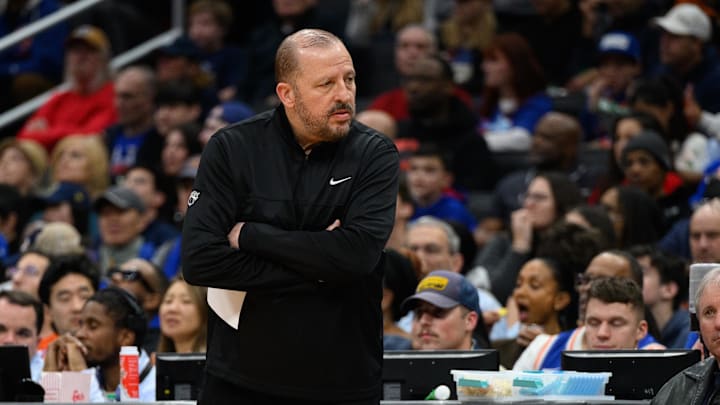As the calendar turns to a brand-new year, the New York Knicks continue to make waves as one of the NBA’s top teams. Riding an impressive eight-game win streak and buoyed by MVP-caliber seasons from Jalen Brunson and Karl-Anthony Towns, the Knicks look poised to rewrite the franchise narrative.
Their supporting cast has also stepped up. Mikal Bridges has found his groove after a shaky start, OG Anunoby remains an elite perimeter defender, and Josh Hart’s relentless hustle on both ends of the floor embodies the team’s grit. This Knicks squad might just be one of the most well-rounded rosters in franchise history.
While players and head coach Tom Thibodeau deserve praise, much of the credit belongs to Leon Rose, whose strategic moves in free agency and at the trade deadline have paid off. Yet, despite all the optimism, one question lingers: Can the Knicks truly compete with the NBA’s elite when it matters most?
What do the numbers say about the Knicks?
Currently sitting third in the Eastern Conference with a 23-10 record — the third-best in the league — the Knicks have showcased their dominance. They rank second in offensive rating, fifth in net rating, and eighth in opponent scoring, with a strong point differential of plus-8. On paper, they are a force to be reckoned with.
However, their record against stronger competition raises concerns. The Knicks are 8-6 against teams with a .500 record or better, suggesting their success has largely come from beating weaker opponents. While winning games they’re supposed to win is critical, their ability to hold their own against the NBA’s top-tier teams will be tested soon, particularly with back-to-back matchups against the rising Oklahoma City Thunder in January.
The Knicks’ current success didn’t come without hiccups. They stumbled out of the gate, going 5-6 in their first 11 games. An opening-night blowout loss to the defending champion Boston Celtics was followed by a heartbreaking defeat to the Cleveland Cavaliers just two games later.
While losing to top-seeded teams like Boston and Cleveland can be excused, losses to the Houston Rockets, Atlanta Hawks, and Indiana Pacers raised eyebrows. In all three games, the Knicks held early leads but faltered late. These early-season missteps were cause for concern, particularly given the high expectations surrounding this roster — arguably the most anticipated Knicks team since the Patrick Ewing era.
The Knicks’ ability to compete will remain under scrutiny, as it always does for teams playing in New York, one of the most scrutinized markets in professional sports. Despite their strong record, every game is a test of their legitimacy.
To solidify their status as contenders, the Knicks must continue to strike the right balance between offensive firepower and defensive intensity. Closing games against tougher opponents will be key to shaking off doubts. Their upcoming schedule provides the perfect stage to prove they can compete with anyone.
For now, the Knicks are winning the games they should, but the playoffs demand a higher level of execution. If they can maintain their momentum and address lingering weaknesses, the team — and its passionate fanbase — might finally receive the respect and recognition they’ve long sought.
